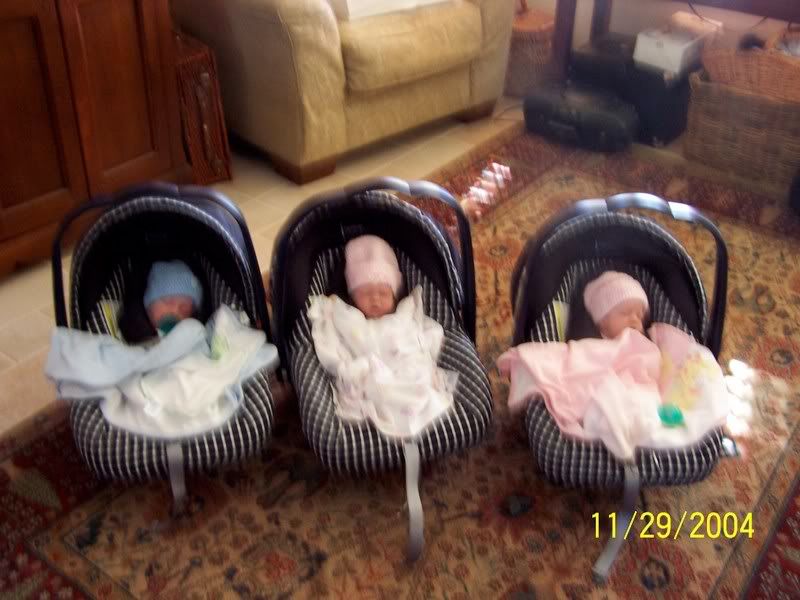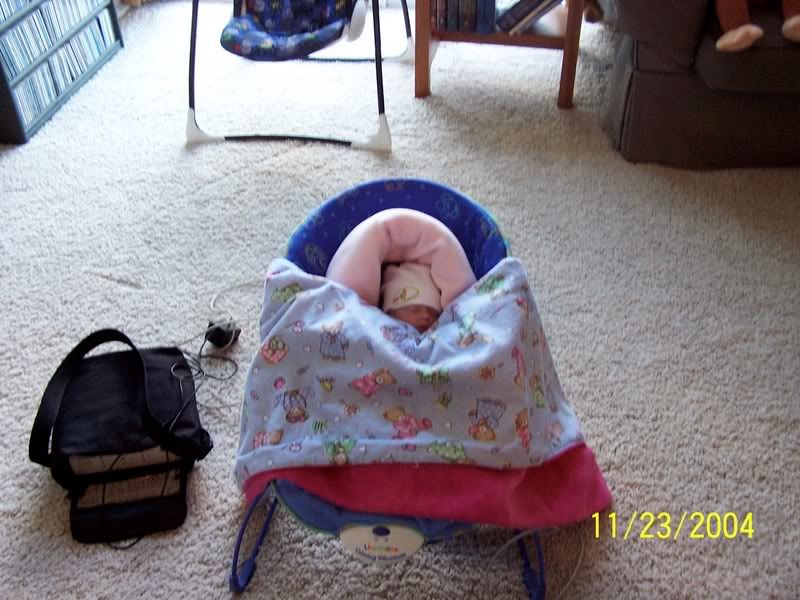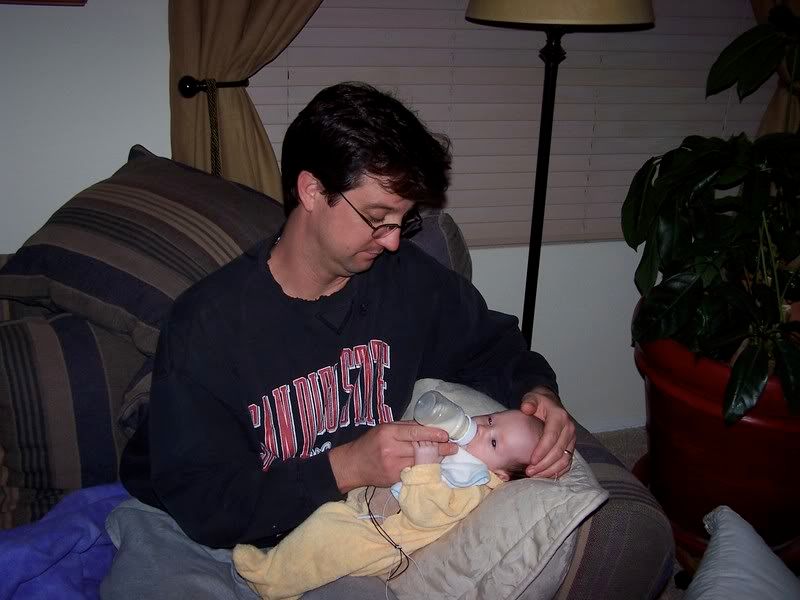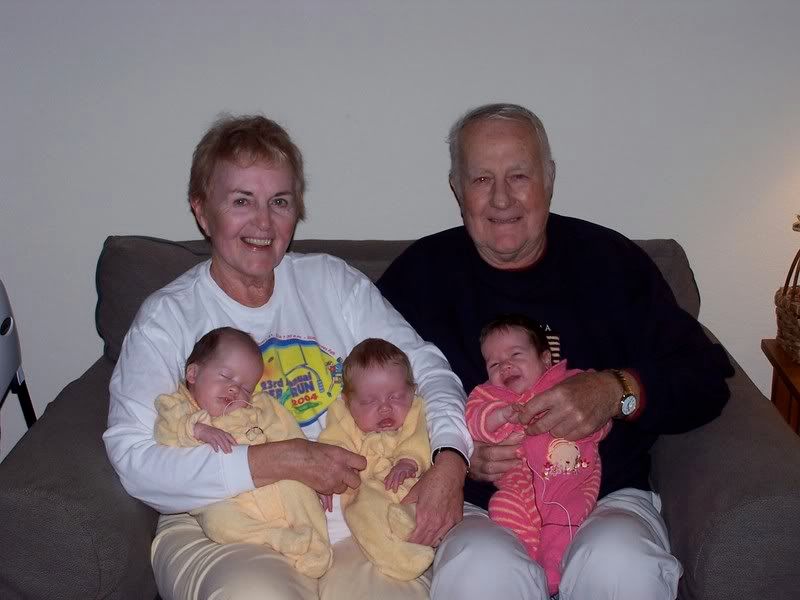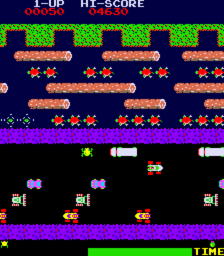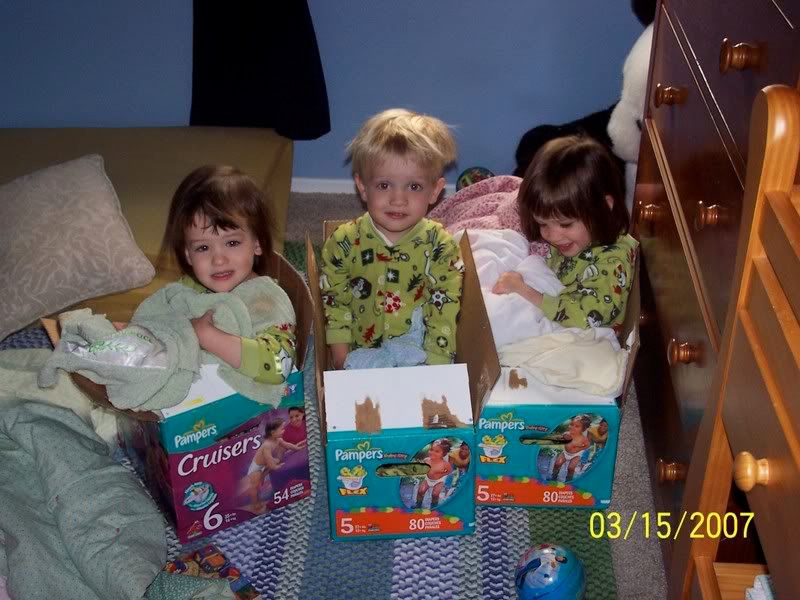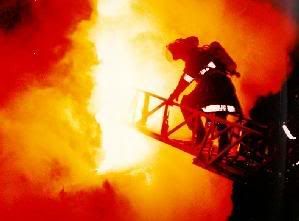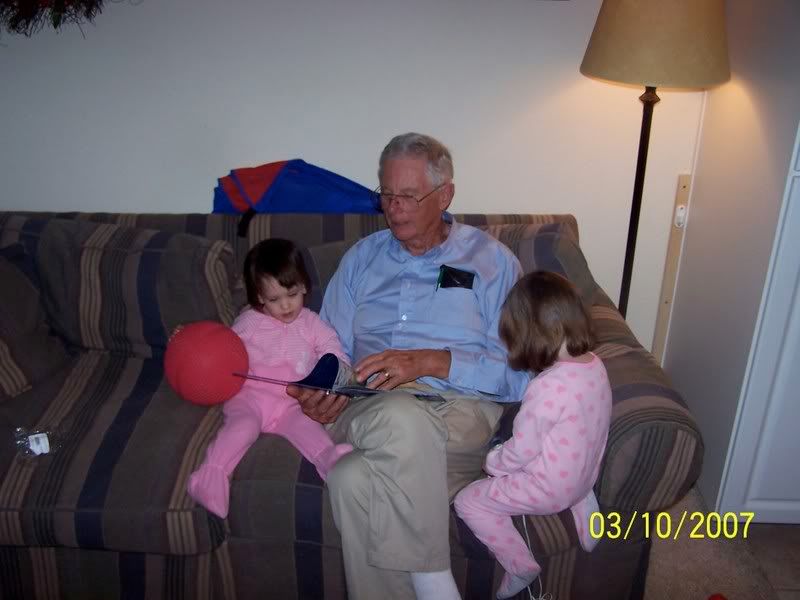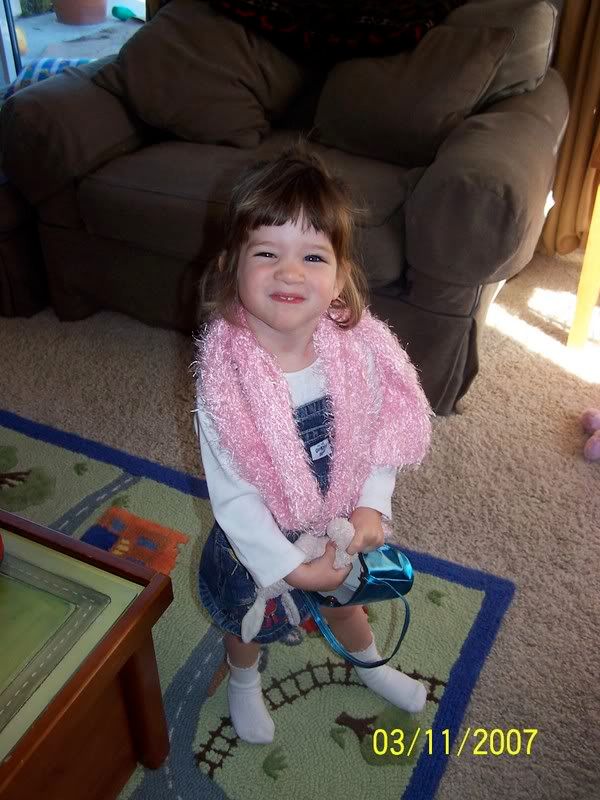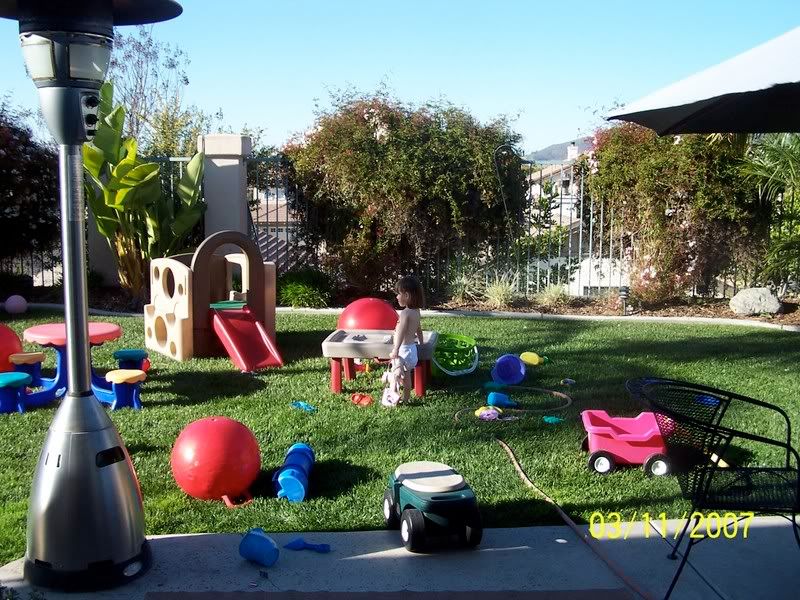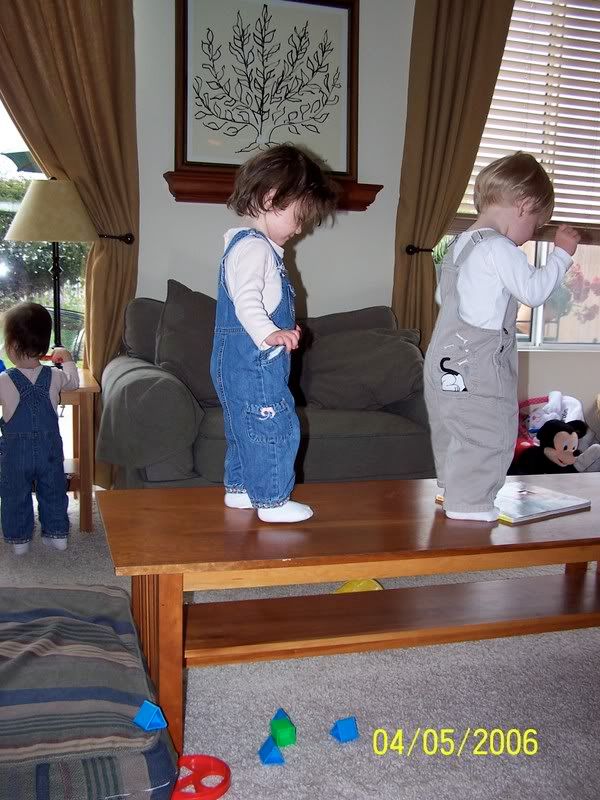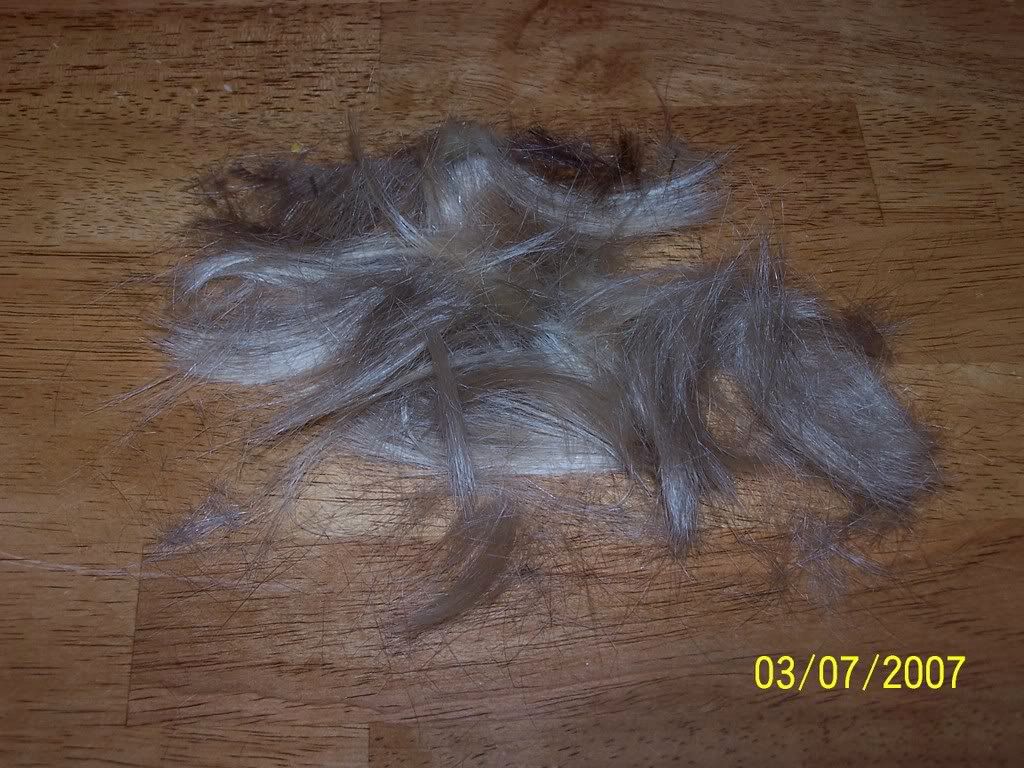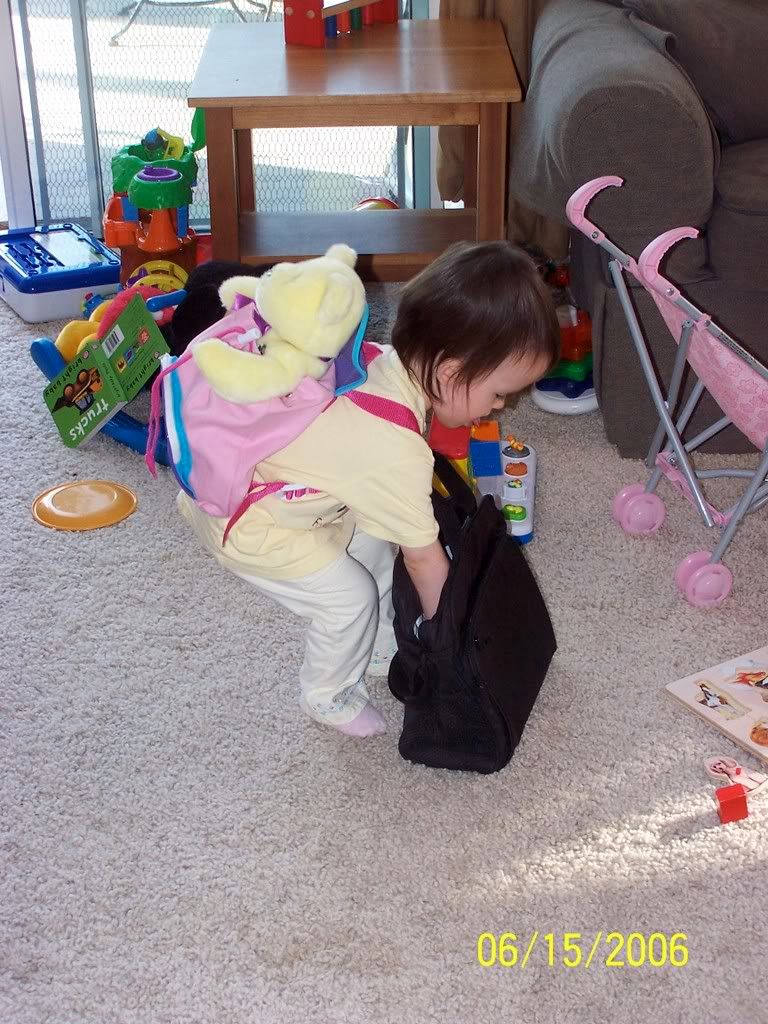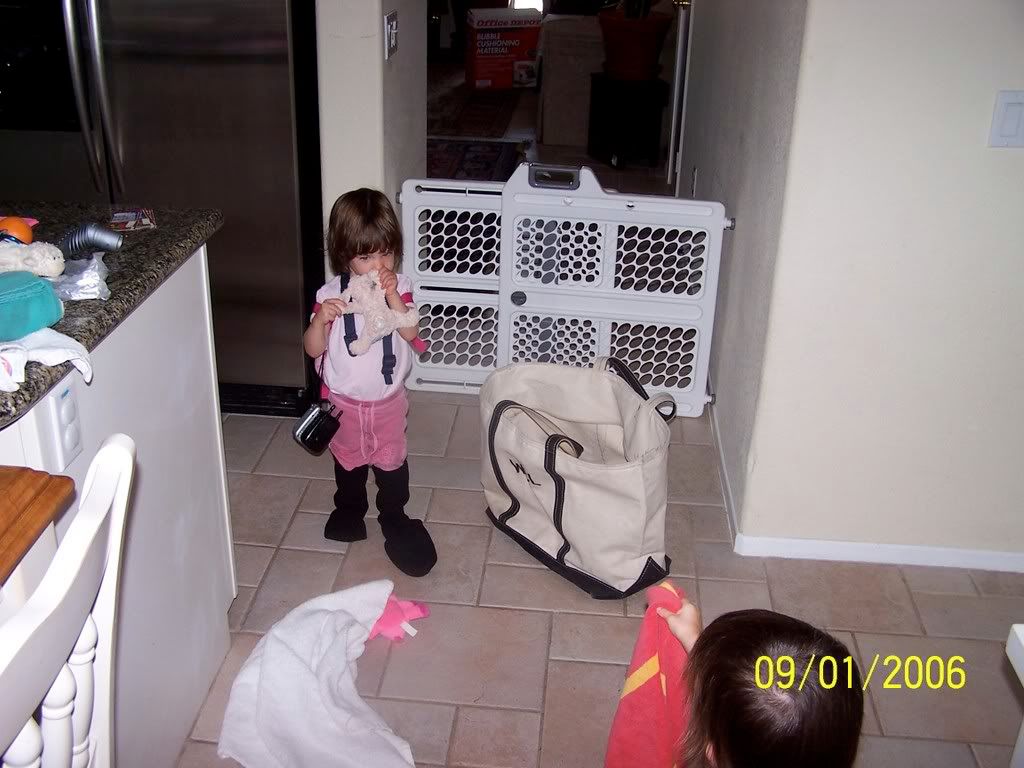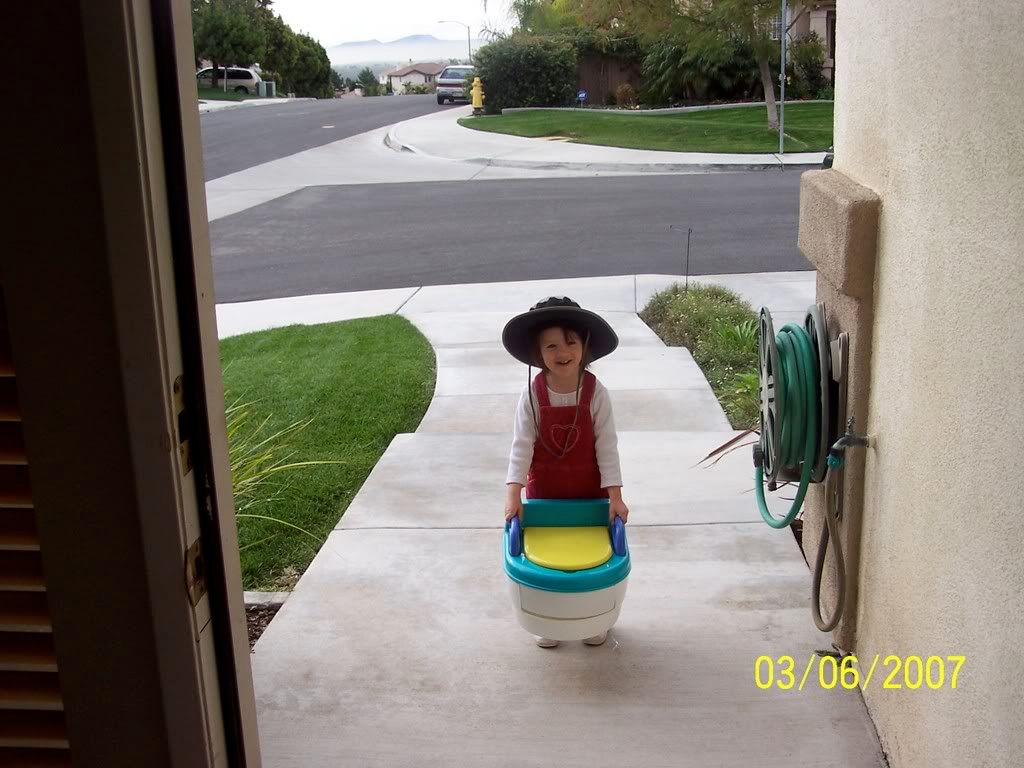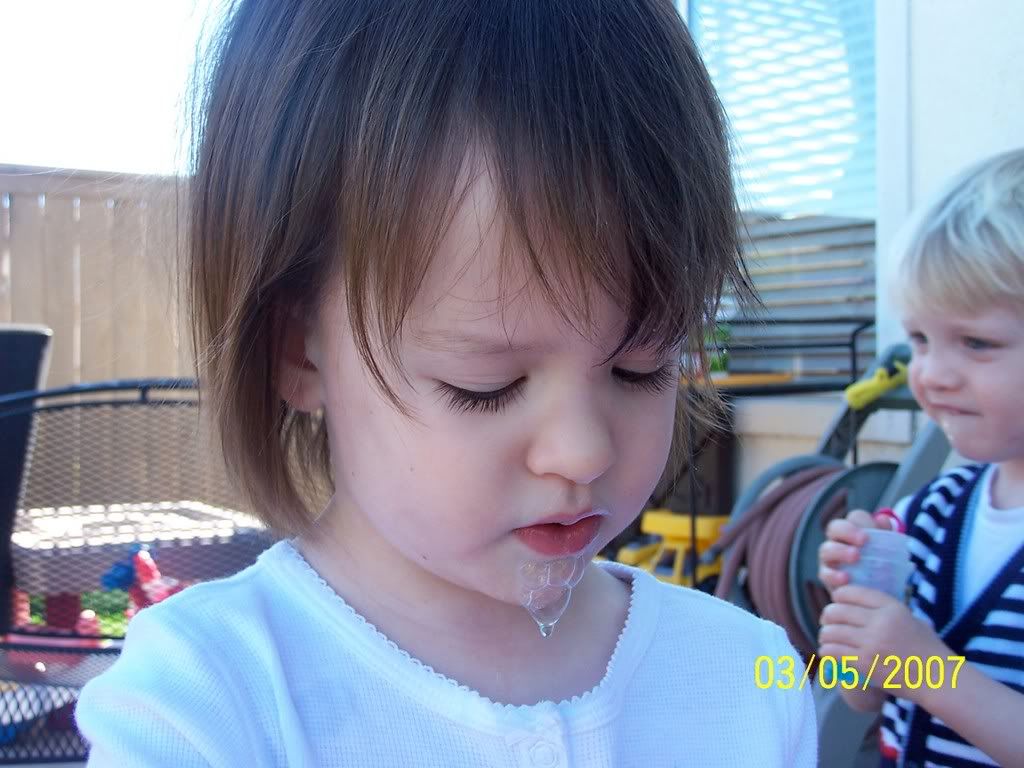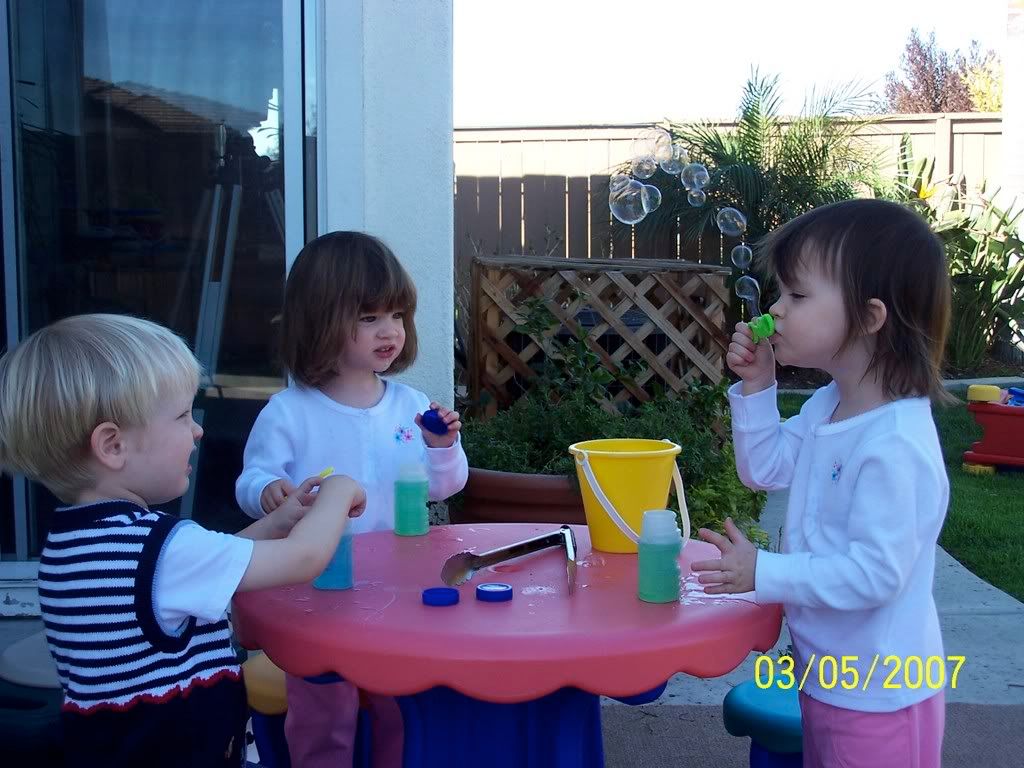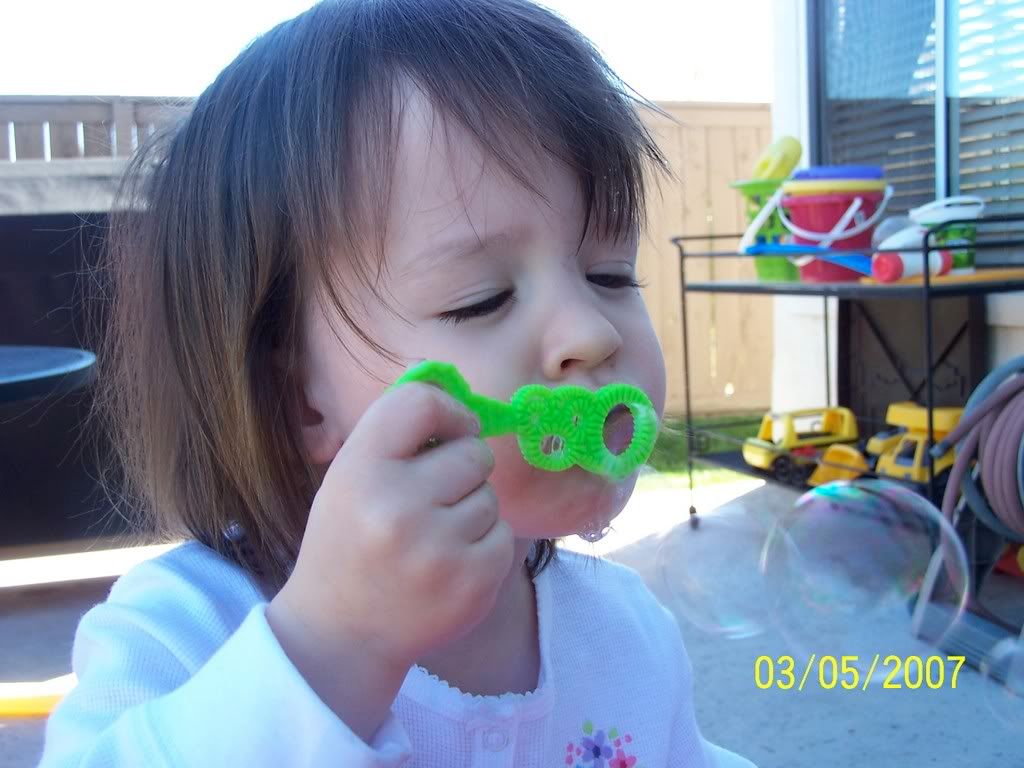Some other things I learned were that the herbal supplements Fenugreek and Lecithin are important to help boost your supply and thin your milk which may prevent clogged ducts.
The prescription Reglan will further boost your supply, if you had a low supply to begin with - or - if you need enough milk to nourish a small community.
Until you "toughen" up - lanolin is great for cracked nipples and gel pads can make any clothing (except a wool bra) that comes in to contact with your chest more tolerable.
Cabbage leaves (although not something I've ever tried) are purportedly a wonderful aid for engorged breasts.
 A hands-free pump bra is a must have if you intend to pump - and a great conversation piece at boring dinner parties.
A hands-free pump bra is a must have if you intend to pump - and a great conversation piece at boring dinner parties.If you suspect that you have mastitis - a fast diagnosis and treatment with an antibiotic (i.e. Keflex), is critical.
This concludes my breastfeeding public announcement. If you want to hear more about my personal experience ... read on.
***********************
For a long time, I've been wanting to write about my experience nursing our triplets.
In case you are wondering - no - I didn't put them all "back on the boob" even though the thought had crossed my delirious mind after our sixth straight month of sickness. But even I'm not that crazy to attempt re-lactating for our 2-year old triplets when I'm 6-months pregnant.
Crazy enough to think and write about it ... definitely not crazy enough to do it.
Instead, I wanted to write about my decision to breastfeed our triplets and how I accomplished this seemingly monumental task.
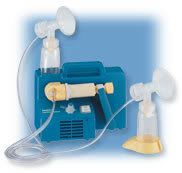 Within two days of our babies being born, I was visited by a team of lactation consultants in the hospital. They arrived in my room with a hospital grade pump, an instruction manual and an assortment of goodies that were intended to make my nursing experience that much more enjoyable. The assortment of supplies they provided me included gel pads, nipple cream, and a coupon for $5.00 off a hands-free pumping bra.
Within two days of our babies being born, I was visited by a team of lactation consultants in the hospital. They arrived in my room with a hospital grade pump, an instruction manual and an assortment of goodies that were intended to make my nursing experience that much more enjoyable. The assortment of supplies they provided me included gel pads, nipple cream, and a coupon for $5.00 off a hands-free pumping bra.What they forgot to put in that goodie bag was a bullet to bite. Because in all honesty, I think that a bullet in my goodie bag would have provided an excellent segue for how - in the beginning - breastfeeding a baby, might be the most excruciatingly painful thing you've ever experienced.
In your entire life.
Yes, even more painful than seeing and hearing Sanjaya and knowing that he'll still be around ... next week.
 My lactation consultants - bona fide cheerleaders who waved flanges instead of pompoms - emphasized the importance of sitting down with my feet up as much as possible - and that any time I sat down to nurse or pump - I should have a big glass of water to sip on.
My lactation consultants - bona fide cheerleaders who waved flanges instead of pompoms - emphasized the importance of sitting down with my feet up as much as possible - and that any time I sat down to nurse or pump - I should have a big glass of water to sip on.They showed me how massaging the breast and nipple prior to pumping or having your baby latch on will help with "let down". They told me that warm compresses can also help to facilitate let down and they stressed that although I might not recover much milk in the beginning ... it was critical that I begin pumping immediately, and continue every three hours, round-the-clock.
They suggested that I start taking the herbal supplement Fenugreek, three tablets with every meal, and they also suggested that I keep a nursing journal - so that I could keep tabs on how my milk supply was increasing with time.
Before they left, they told me that not all breastmilk is created the same. My breastmilk, was perfectly formulated for our babies at that exact point in their lives. I learned that with time, my breastmilk composition would change to fit the nutritional needs of our children. So, when our babies were full-term, my milk would have a different chemistry and fat base to satisfy their needs, than it would when they were 31-week preemies.
Never once did they warn me that hooking a manual pump up to my naked chest - or putting a hungry baby to breast - would be anything like unleashing a ravenous tiger on fat vulnerable prey.
Oblivious to what I was in for - and anxious to get started - I hooked myself up to the pump and sat on my hospital bed, fully expecting to see the little 2-oz bottles that they provided me with, instantly fill up with milk.
Instead, after a solid 20-minutes and nothing to show for my efforts, I decided that maybe I hadn't massaged enough or maybe the pump wasn't set at an intense enough level.
So, I massaged more and pumped more.
And more.
And more.
Still, nothing.
Even though I did everything that the lactation consultants told me to do - I still had not produced a single drop of breastmilk after two days and a grueling amount of time hooked up to the torture equipment I had set on "high".
By this point, our babies were still receiving donated breast milk - I was feeling like a complete failure that I couldn't produce the milk that was needed for their survival - and my nipples had almost completely chafed off my chest.
Although there was nothing I could have done to control our babies from being born 9 weeks prematurely, I felt like I could control (or at least try to control) my body's ability to produce breastmilk - which according to the lactation consultants, was the most important thing I could provide for them. So I kept on pumping, despite the agony.
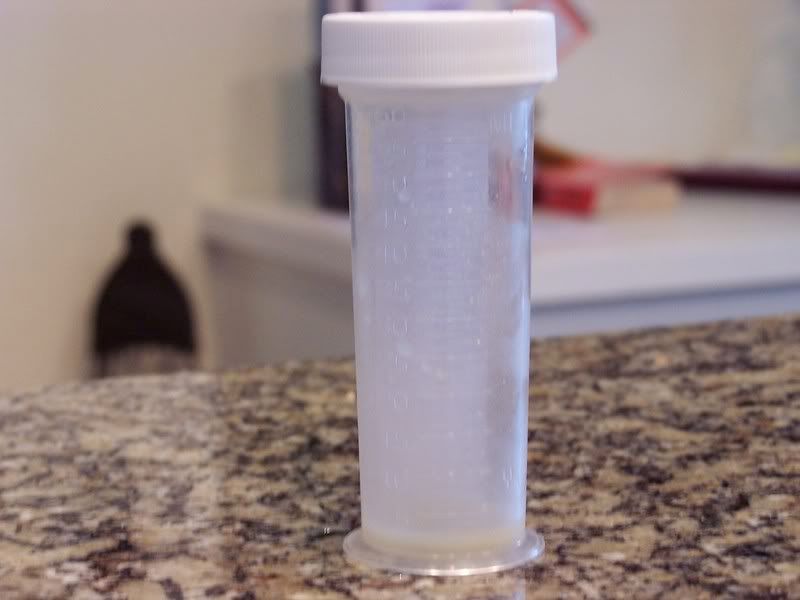 And finally - colostrum appeared. Although at first sight, I thought it was the liquefaction of my breasts from all the pressure they'd been subjected to over the past week.
And finally - colostrum appeared. Although at first sight, I thought it was the liquefaction of my breasts from all the pressure they'd been subjected to over the past week.Within a week from the appearance of colostrum, I was producing approximately 8 ounces of milk a day. This continued to go up with time, and because our babies had not yet mastered the suck, swallow, breathe reflex - I was able to record the volume of milk I was producing.
After a few more days, the lactation consultants put me on a prescription for Reglan, in addition to the Fenugreek I had been taking. Incidentally, Reglan was the same prescription that our newborn girls were on for reflux - but in my case - it was intended to help boost my breast milk supply even more. As was the oatmeal, beer and large volumes of Mother's Milk Tea I was devouring. Later, I also added Lecithin to my diet, which was another herbal supplement used to thin breastmilk and help prevent clogged ducts. (I didn't learn about this until after my second bout of mastitis.)
Within a few more days, my supply had increased to approximately 20 ounces a day ... and continued to go up, topping out at approximately 70 ounces per day. Considering our babies were consuming more and more with each feeding - I was just barely able to keep up with their intake. However, I was told that my milk supply would go up even more, when I finally transitioned the baby to breast - because apparently - a baby does a better job extracting milk than the best pump on the market.
After everything that my nipples had been through with a hospital grade pump - that seemed unbelievable to me.
Unfortunately, just as I was preparing to put our babies "to breast", I broke out from head to toe in hives. At first my doctors thought that perhaps I was having a relapse of HELLP Syndrome, but it was soon discovered that in my quest to be a milk machine ... I had overdosed on Fenugreek. During an exam, one of my perinatologists caught a glimpse of my barren chest and told me that it looked like someone had slammed my boobs in a car door. Much to my dismay, I was given strict instructions to eliminate Fenugreek from my diet and cut back on my marathon pumping sessions.
When I was finally able to attempt nursing, the reality of my experience was not at all what I had envisioned. It certainly wasn't like any of the movies I had seen where a newborn hungrily latches on and the mother smiles contentedly.
Instead, I sat with my compulsory Boppy Pillow (which I never liked) and my premature newborn who was 1/2 the size of my engorged breast. With one hand on the baby's head - I tried to use my other hand to maneuver a nipple in to my baby's tiny mouth.
All told, out of 100+ nursing sessions I attempted - I was able to sucessfully have a baby latch on twice. And both times, the baby promptly turned blue - setting off numerous alarms - and I was convinced that my boobs would ultimately be responsible for the demise of my child.
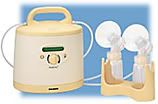 So, I gave up on nursing and continued to pump. For several months, I continued to pump. Despite two cases of mastitis, cracked nipples, and an overwhelming desire to sink my breast pump to the bottom of the ocean.
So, I gave up on nursing and continued to pump. For several months, I continued to pump. Despite two cases of mastitis, cracked nipples, and an overwhelming desire to sink my breast pump to the bottom of the ocean.One day, after the babies had been home for two months, Charlie and I went out shopping. While we were at the store - Carolyn reminded us that we were rapidly approaching feeding time. We quickly made our way back to the car and when I opened our cooler and realized that all of the bottles were ice cold - I panicked.
Because it would take at least 15 minutes to warm up the bottles and 30 minutes to drive home, I decided that I had two options: 1) Give our babies cold milk ... or 2) attempt nursing. After Carolyn spit her cold milk at me and continued to wail - I had no choice but try Option 2.
In the backseat of our van, I gingerly brought her up to my chest and as I wracked my brain trying to remember how to maneuver the nipple in to her delicate mouth - I was absolutely shocked that she latched on with such ferocity I fell backwards in the seat. What was even more shocking was that my once tiny baby, had developed such a strong reflex, she could have easily sucked the chrome off a bumper.
Was it possible that my baby was actually nursing? Was it possible that she was getting all of the nutrition she needed - directly from me - and without a bottle?? How would I know if she'd had enough to eat - I certainly couldn't gauge how many ounces she had consumed?!
Despite my worries, after 10 minutes, she stopped nursing - let out a big burp - and promptly fell asleep with a drunken smile across her precious little face.
I felt totally vindicated. I could DO this!!!
Because I was anxious to rid myself of the pump, I instantly made the decision that I would try nursing two babies during each feeding session. The third baby, who I would rotate through, would receive extracted breastmilk and a formula supplement, from a bottle.
The advantages to this new feeding approach were tremendous and I could see my life transforming before my eyes.
I would be saving a huge amount of time ... no more pumping and THEN feeding!
No more flanges, bottles and nipples to wash!!
With my spare time - I could maybe start a scrapbook. Or, clean the house. Or take a nap!!!
Best of all - I would be bonding with my babies!!!!
Yet after less than 24 hours, I thought for sure I was dying. The pain of anything (including gel pads) touching my nipples was absolutely excruciating and water spray from the shower was pure torture, despite smothering myself beforehand in Lansinoh lanolin.
When I placed an emergency call to La Leche League, I was informed that although breastfeeding might be "uncomfortable" it most definitely should not be painful. After telling a consultant that whenever a baby latched on, I had to bite a cloth diaper to prevent from screaming - and my toes would curl up underneath my feet - the woman on the other end of the line told me that I was obviously doing something wrong.
For days, I tried to figure out what I could do better.
I spoke with girlfriends, sisters - my mother. I called the Lactation Consultants at the hospital. Everyone that I spoke to would tell me that although breastfeeding might be a tad bit uncomfortable - they didn't remember it feeling like someone was trying to cut their nipples off with a pair of rusty scissors.
Which made me question what my problem was. I mean really, how in the world has humanity survived thousands of years if breastfeeding was such a brutality??
It made no sense.
But then again - in the history of humanity - how many women (except wet nurses) attempted to breastfeed more than one baby at a time??
In the midst of this chaos - I contemplated throwing in the towel. I didn't want to keep up with the pumping and I certainly didn't want to subject myself to the torture of nursing. All three of our babies had been successfully supplemented with Similac Isomil, due to William's lactose intolerance, and I knew that they would grow in to healthy, happy babies just fine on a formula diet. But I was stubborn.
After a week of nursing hell, William spit up blood all over my shirt. At first I was terrified that he was bleeding internally ... but then Elizabeth and Carolyn spit up blood all over Charlie's shirt. I did a self inspection and couldn't see that I was bleeding - so placed a frantic call to our pediatrician. When I told him what was happening, he assured me that the blood was most likely coming from me. He also warned that I'd probably come down with another case of mastitis in the next few days because bacteria from the babies' mouths would cause an infection.
It turns out, I had cracked nipples and although the blood wasn't immediately visible - when our children latched on with their little mouths that are infact, the best damn pumps available, they were sucking so hard they drew blood.
My children drew blood.
FROM ME.
Sure enough, the very next day - I woke up with the tell-tale symptoms of mastitis. Since this was my third case, I called my doctor - informed him of my diagnosis - and dashed off to pick up my prescription of Keflex. The pharmacist - having seen me several times over the past month - shook his head and asked "Why do you keep it up?"
I responded, "Because - I know that it's got to get better. It sure as heck can't get any worse." With my sincerest thanks to all the powers that be, eventually, another week or two later - it did get better.
It got to the point that I wouldn't break out in a cold sweat and stuff cloth diapers in my mouth whenever I brought a baby up to my chest ... my toes wouldn't involuntarily curl up underneath my feet ... and I stopped looking at the clock with pure dread as feeding time drew near. Amazingly, I soon would learn to feed two babies at once and found great satisfaction in knowing I, alone, could calm a fussy baby down in a matter of seconds.
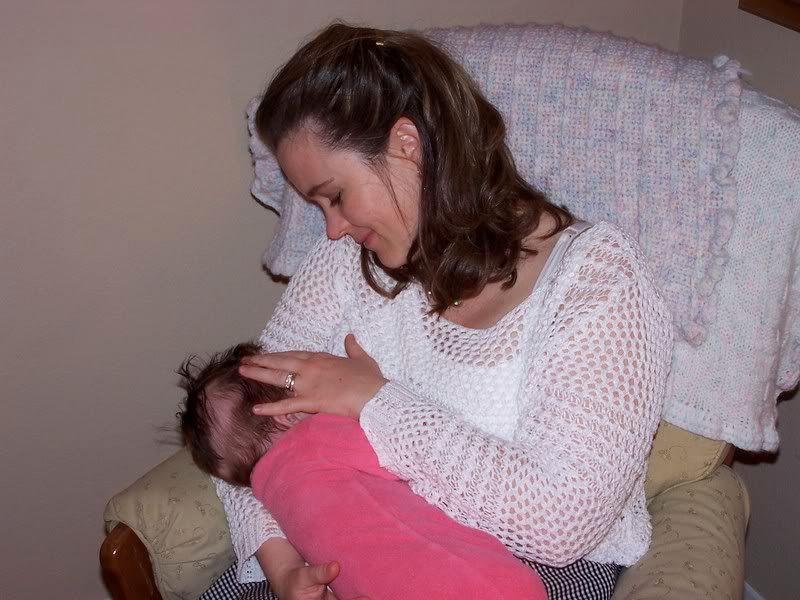 With time, I stopped pumping all together and I reduced my nursing from every feeding ... to only three feedings a day. I would nurse all three first thing in the morning - one at lunch - and all three just before bed. As I reduced the volume of breastmilk they were receiving, I increased the amount of formula they were consuming.
With time, I stopped pumping all together and I reduced my nursing from every feeding ... to only three feedings a day. I would nurse all three first thing in the morning - one at lunch - and all three just before bed. As I reduced the volume of breastmilk they were receiving, I increased the amount of formula they were consuming.Although I know women who exclusively breastfed their triplets ... this was not something I wanted to do. I did not want to be "tied" to the breastpump after every nursing session - which would be necessary to help keep my supply high enough for three babies. I also craved the freedom to get out and do things during the day, without having to lug a pump along with me. Bottles, particularly Podee bottles were my saving grace at these times.
I also know a lot of women who exclusively formula fed their babies. Some feel guilt about this decision, some do not. In my opinion (borrowed directly from my mother), it's not as important what you feed your child - as how you feed your child.
You can nurse your baby with love - just as you can bottle feed them with love.
If you are a stress case because you want every meal to be breastmilk - and you are up round-the-clock with a fussy newborn, that may not be the best solution. Sometimes women do not produce a sufficient amount of milk - sometimes they have issues with a baby successfully latching on - sometimes a baby is allergic to their mother's milk - or sometimes the pain, frustration and exhaustion is so great they decide to stop.
I was doggedly determined to breastfeed. But because of the challenges I faced, I can easily see how women beat themselves up when they feel like they are not able to accomplish this task which should be second nature. Despite my overwhelming desire to breastfeed, I didn't nurse exclusively because I firmly believe that formula is not a bad thing.
I'm pleased that I stuck it out, but I nursed when I wanted to nurse - not necessarily when the babies needed to eat. If I had nursed them whenever they needed to eat - I would have been glued to the couch for the first 6-months of their lives. In the end, I feel like breastfeeding our triplets helped me to quickly lose the 100-pounds I packed on during my pregnancy and it also gave our babies a much needed boost to their fragile immune systems. More than that - I will always have fond memories of snuggling with a baby in the early morning - or just before bed - and holding their little bodies close.
Even though William weaned himself after approximately 11 months, I continued to nurse Carolyn and Elizabeth two times a day until they were 16-months old. I suspect if I hadn't decided it was time, our girls would have happily nursed until they went off to Kindergarten.
And well, that might be a little awkward.
